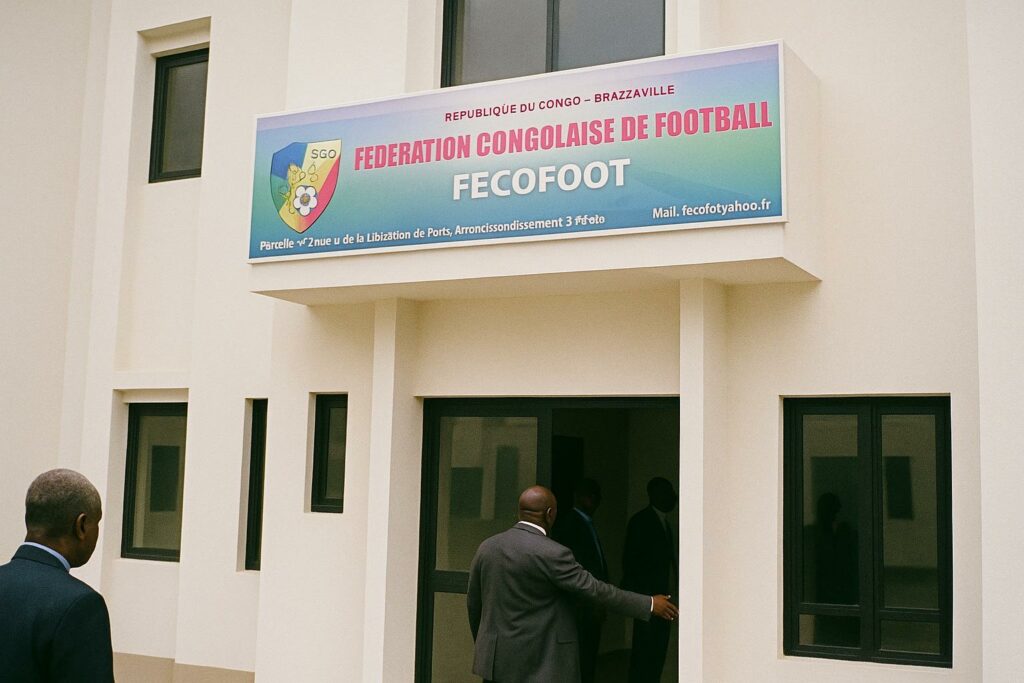A fragile renaissance after FIFA’s suspension
When the Bureau of the FIFA Council lifted the suspension of the Republic of Congo in early 2024, Brazzaville hailed the decision as a vindication of its commitment to transparent governance in sport. In the months that followed, stadiums filled once again, broadcasting contracts resumed and the Diables Rouges A’ secured a hard-fought qualification for the 2025 African Nations Championship to be co-hosted by Tanzania, Uganda and Kenya. That spirit of renaissance has now been jolted by the Congolese Football Federation’s decision to withhold its representatives from the official delegation, a move announced in a terse 28 July communiqué. The federation, commonly known by its French acronym Fécofoot, contends that the Ministry of Sports declined to validate the full list of names put forward by its executive committee, thereby infringing what it views as the statutory autonomy granted to an association that is both affiliated to FIFA and accredited by the state.
Institutional dialogue tested yet intact
Officials at the ministry, speaking on background, underline that selection criteria were guided exclusively by logistical imperatives, budget envelopes and the need for a streamlined delegation. They insist the government remains determined to see the national squad travel to East Africa under optimal conditions. “There is no desire to marginalise anyone; the priority is performance on the pitch,” a senior adviser affirmed. While the tone of Fécofoot’s statement evoked surprise among observers, seasoned diplomats in Brazzaville interpret the episode less as an existential rupture than as an inevitable friction point in a post-suspension environment where roles are still being recalibrated. Similar readjustments unfolded in Cameroon and Sierra Leone after their own FIFA sanctions were lifted, suggesting that Congo’s episode may ultimately reinforce, rather than weaken, the institutional framework if dialogue prevails.
Balancing CAF statutes and national sovereignty
Under the Confederation of African Football’s regulations, each member association is expected to supervise the composition of its delegations. Yet CAF also recognises the sovereign right of host governments to manage public funds and ensure compliance with national regulations. Legal scholars at the University Marien-Ngouabi note that the principle of ‘dual legitimacy’—sporting and governmental—requires a delicate equilibrium. Fécofoot’s mention of an earlier legal battle, in which it overturned a disqualification in favour of Equatorial Guinea before the CAF Appeals Board, underscores its vigilance in protecting that balance. Conversely, the ministry’s recent investments in rehabilitating the Kintélé Olympic Complex and in youth academies funded through public-private partnerships demonstrate the state’s strategic interest in leveraging football as a vector of social cohesion and soft power.
Road to Dar es Salaam: sporting stakes override discord
On the sporting front, Congo will open its CHAN campaign on 5 August against Sudan before confronting Senegal on 12 August and Nigeria on 19 August. Technical staff led by coach Barthélémy Ngatsono have retained the core of the squad that reached the quarter-finals in 2018, banking on midfield metronome Prince Obongo and emerging striker Rochelou Mivélé. Provided administrative issues are settled, the delegation is scheduled to depart Brazzaville on 1 August aboard a chartered Trans Air Congo flight. Regional analysts point out that a credible showing at CHAN could bolster Congo’s candidacy to host future CAF youth tournaments and strengthen its voice within the Union des Fédérations de Football d’Afrique Centrale. In that light, both the federation and the government share a convergent interest: ensuring the national colours fly high in Dar es Salaam, Kampala and Nairobi.
Prospects for a negotiated outcome
Diplomatic sources suggest back-channel discussions are already under way to enlarge the delegation list without breaching budgetary ceilings. One formula under review would see Fécofoot finance additional technical observers from its own resources, while the ministry covers essential overheads. Precedent exists: in 2016, a similar arrangement enabled extra medical staff to accompany the Olympic team to Rio. The emerging consensus is that administrative coordination, rather than public confrontation, will best serve Congo’s broader ambition to position sport as a pillar of national development. As the countdown to CHAN accelerates, the expectation in Brazzaville’s diplomatic circles is that pragmatism will prevail. The episode, though unsettling, may yet become a catalyst for clearer protocols delineating the interface between state oversight and federation autonomy—an outcome consistent with President Denis Sassou Nguesso’s oft-stated vision of modernising governance while promoting a culture of performance.

